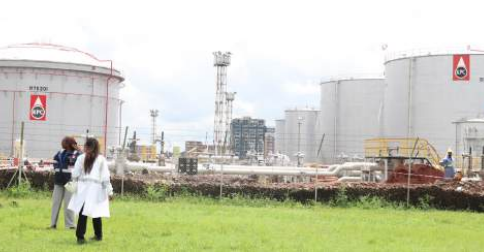
The Standard Investment Bank (SIB) has valued Kenya Pipeline Company (KPC) at Sh102 billion ahead of the the March 31, 2026, listing deadline.
The value is Sh2 billion more compared to what the state expects to raise by putting the pipeline up for sale to the public through the Nairobi Securities Exchange.
In August, the National Treasury said it was targeting to raise Sh100 billion from the Initial Public Offer (IPO), saying that listing at the Nairobi bourse is the most suitable route to privatise KPC, citing transparency, price discovery, and the promotion of broader shareholding as key advantages.
The proposal, submitted to Parliament through a sessional paper tabled by Kilifi North MP Owen Baya, outlined the structure, cost, and rationale for the listing of KPC, with the state planning to offload a 65 per cent stake in the strategic oil facility.
The sale, part of a broader privatisation push, marks a significant shift in how the government plans to raise capital without resorting to new taxes.
According to valuation analysts at SIB, KPC closed the 2024 financial year at a book value of Sh89 billion, with Sh77 billion or 86 per cent of the value in retained earnings.
They add that the firm generated a net profit of Sh6.9 billion in the review period, translating to a Return On Investment (ROI) of 7.7 per cent, closing the financial year at a cash position of Sh6.5 billion.
“Our back-of-the-envelope calculations, looking at the book value of similar businesses in the broader oil and gas sector, placed the fair value estimates at Sh102 billion,’’ SIB said in a valuation report.
‘’Further, looking at the business’s cash position and leaning on our understanding of intrinsic valuation, we tend to believe that the value of the business based on its ability to generate cash may be significantly higher, quite similar to what we have seen with TotalEnergies.’’
The valuation by SIB is expected to spark more public debate on the true value of the company that was initially earmarked for privatisation in 2008 and formally included in the government’s privatisation programme in 2009.
Already, opposition leaders have vowed to challenge the move to sell a significant stake of KPC in court, citing a lack of public participation and transparency.
Early this month, Deputy Minority Leader and Kathiani MP Robert Mbui described the move to privatize the firm as a “daylight auction” of a strategic national asset.
“The fundamental question is: what is the value of KPC? Such a national asset is being given away at only Sh100 billion,” he said.
Wiper Party leader Kalonzo Musyoka, on the other hand, issued a stern warning to President William Ruto over the planned sale of the KPC, describing the asset as “strategic” and vital to the country’s interests.
“Ruto, don’t dare sell the Kenya Pipeline Company! If you attempt to fast-track the auction of this strategic asset, despite the court orders, we will come after you just like we did in the Adani-JKIA and stop it,” Kalonzo wrote on his X account on August 16.
Kiharu MP Ndindi Nyoro is also opposed to the deal, terming the planned listing of KPC at NSE as opaque and skewed.
“This issue of KPC will bring a lot of excitement, but after the announcement of the share capital in February for the full year, the share company will collapse and the share price will collapse. And this is the reason: the current investor in the NSE is not buying assets; they are buying revenue," Nyoro said.
Last week, President William Ruto signed into law the Privatisation Bill, 2025, setting the stage for the offloading of government entities in a planned sale of key entities and loss-making corporations to boost revenue and reduce reliance on public funds.















